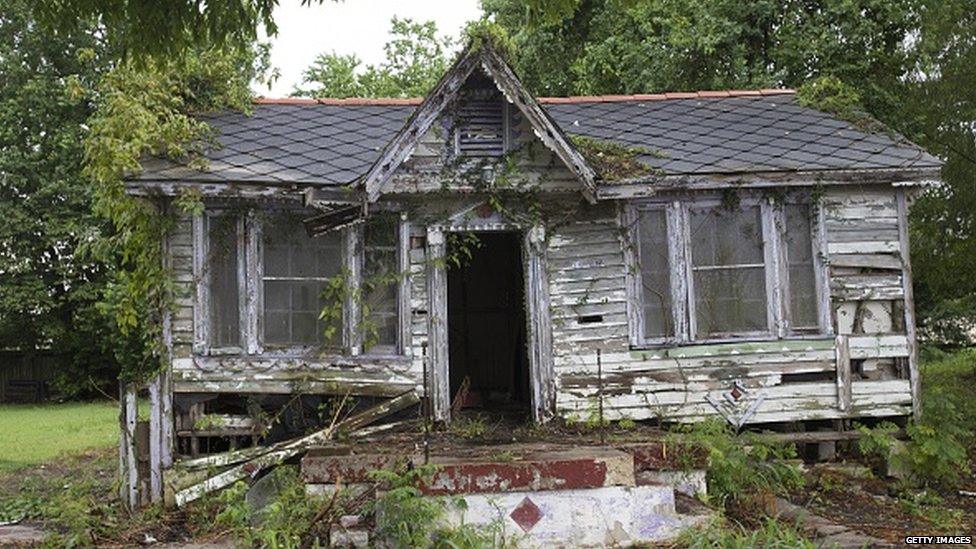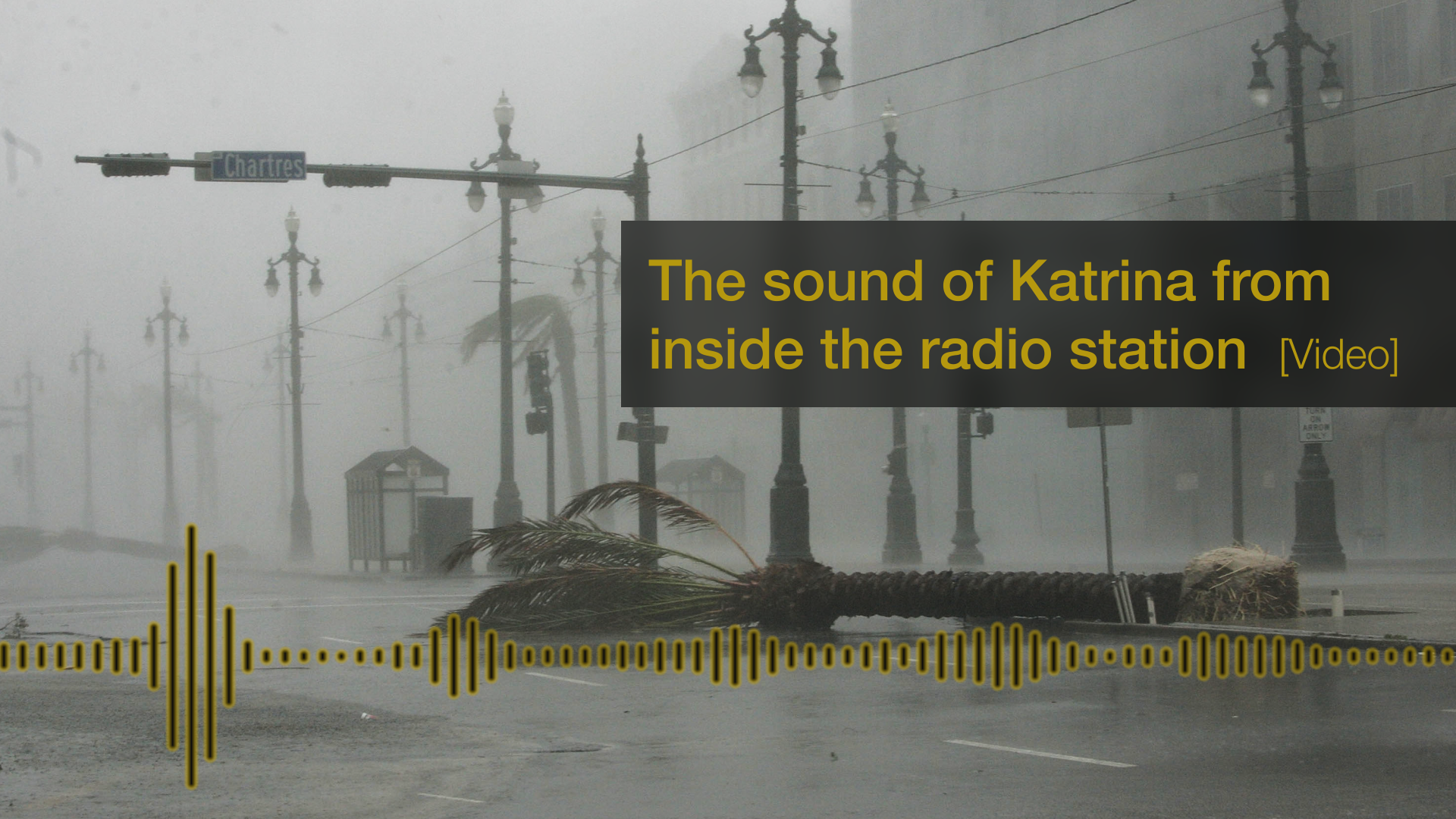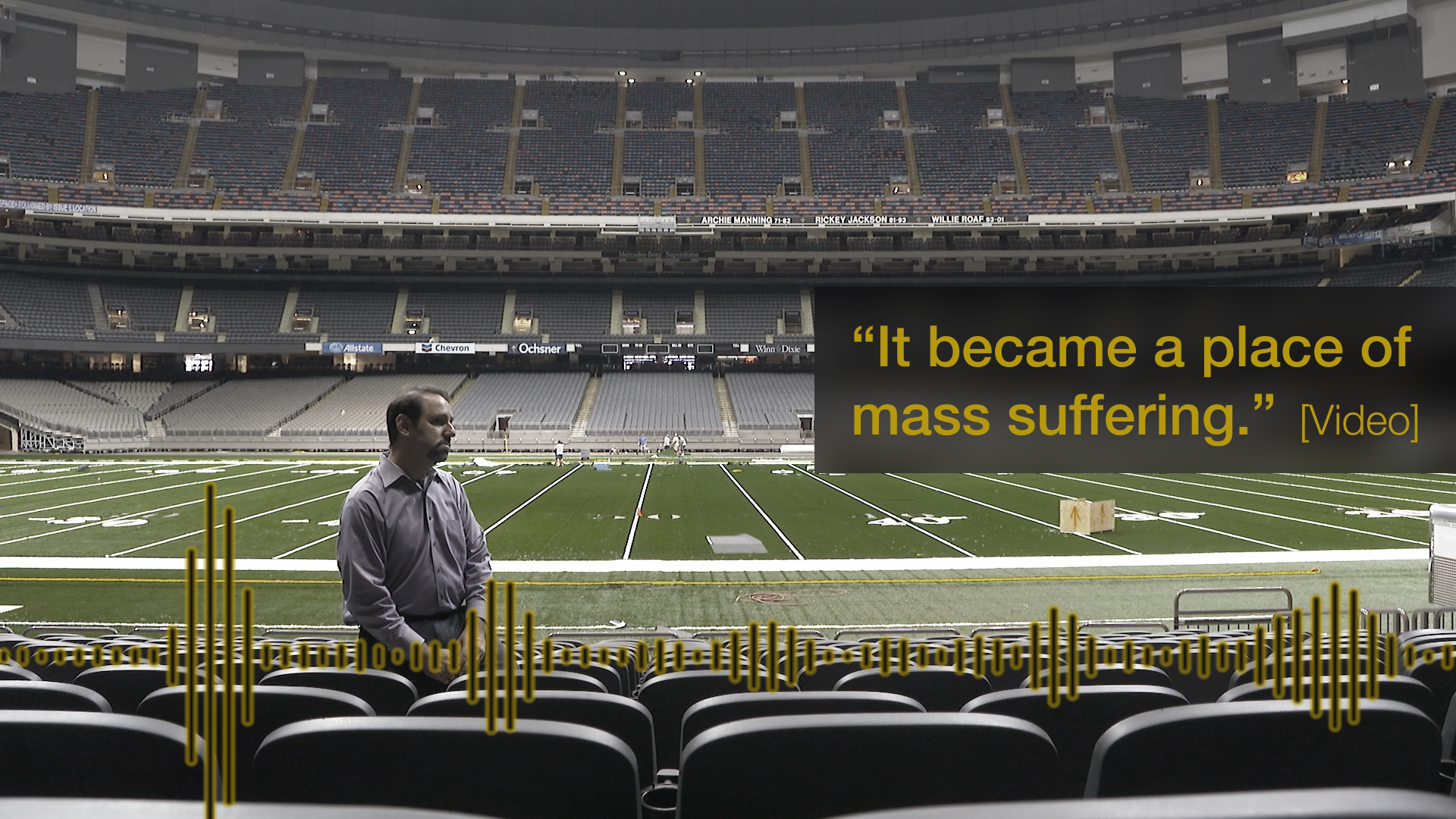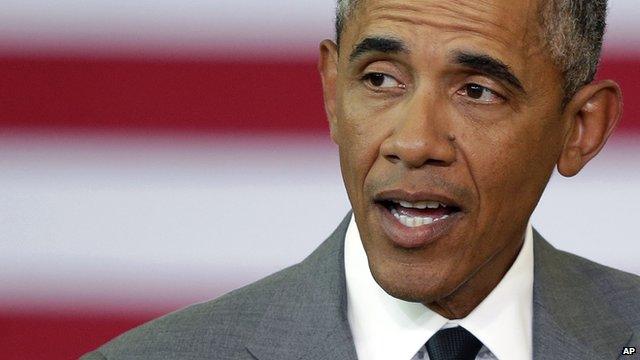Hurricane Katrina: New Orleans 'moving on', Obama says
- Published
Barack Obama: "An American city dark and underwater - that was something that was supposed to never happen here, not in America"
US President Barack Obama has said New Orleans is "moving forward" 10 years after the devastation of Hurricane Katrina.
Residents of the Lower Ninth Ward exemplify people "building a better future" out of tragedy and setting a positive example, Mr Obama said.
The mostly African-American neighbourhood is still recovering from the disastrous 2005 storm.
Hurricane Katrina killed nearly 2,000 people and displaced one million.
Mr Obama delivered remarks on Thursday at the Andrew P Sanchez Community Center in the Lower Ninth Ward.
"Not long ago, our gathering here might have seemed unlikely," said Mr Obama.
"But today, this community centre stands as a symbol of the extraordinary resilience of this city and its people, of the entire Gulf Coast, indeed, of the United States of America.
"You are an example of what's possible when, in the face of tragedy and hardship, good people come together and lend a hand, and to building a better future."
Mr Obama said the storm made New Orleans, a city that "embodies a celebration of life, suddenly seem devoid of life."
African-Americans and people in hard-hit parishes might not feel like they had recovered as much as the rest of the city, he said, but he was confident the city was "moving in the right direction."
He touted some of New Orleans' achievements since the storm, like higher school graduation rates and eradicating veteran homelessness, and called the city the "gateway to America's soul."


Many houses in the lower Ninth Ward were completely destroyed and many remain abandoned
At the scene: Rajini Vaidyanathan, BBC News, New Orleans
A short drive from where President Obama delivered his speech stands a three-storey brick building. Its windows are boarded up, and spray paint graffiti covers the walls. Before Katrina hit America's Gulf coast, this was an elementary school.
Today, it's just one of many buildings and homes in the city, which remain untouched. Ten years on from the storm, much of this city has rebuilt - resilience is a word often used here to describe the community spirit which has helped New Orleans bounce back.
But many people I've spoken to, say the rebirth of the city has left them behind. One man said it's a daily struggle to see blighted houses, which devalue occupied ones. America's comeback city still has a way to go.

He also visited the Louisiana city on the hurricane's fifth anniversary in 2010.
When the storm hit, Mr Obama was serving in the US Senate. The storm broke the levees that were supposed to keep New Orleans from flooding.
Mr Obama said the storm helped reveal inequality in New Orleans. Many people, mostly minority groups, did not have jobs, adequate housing, health care or quality schooling, and grew up in violent neighbourhoods.
He said it is important "not to harp on what happened, but to memorialise it."
"We do this not in order to dwell on the past, but in order to keep moving forward," he said in prepared remarks. "Because this is a city that slowly, unmistakably, together, is moving forward."
Mr Obama stressed the importance of cities investing in storm preparation for disasters brought on by global warming.
"New Orleans has become a model for the nation in disaster response and resilience," he said.
Some parts of New Orleans have still not recovered, as Gary O'Donoghue reports
Despite massive destruction, the city has risen anew out of the storm.
New Orleans' rebirth has been bolstered by billions of federal dollars, largely spurred by Mr Obama.
The city has recovered much of its population lost during the storm as new businesses emerge and tourists visit the city, famous for its jazz music, unique food and party culture.
Despite those strides, income inequality and crime still plague the city, which Mayor Mitch Landrieu calls "America's Comeback City."
- Published29 August 2010
- Published20 August 2015

- Published20 August 2015

- Published27 August 2015
